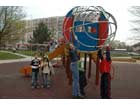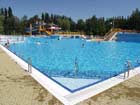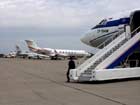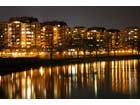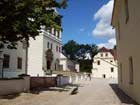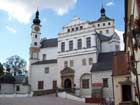History/History/Beginning of the 21st century
Beginning of the 21st century
Pardubice began to change for the better after the fall of the communist regime. Despite the transformation of the economy after 1989 bringing the end to a number of enterprises (Tesla, TMS) and the fact that many other companies restricted both production and the number of people they employed (Synthesia), the level of unemployment in the town did not rise dramatically. This was mainly thanks to the far-sighted policy of the city, whose management came up with the idea of setting up a free trade zone close to the airport at the beginning of the 1990s. And so it was that a free customs zone, the only one in the Czech Republic, a place where production and commercial companies were offered assembly, storage and production facilities, was created over six hectares. We should just add that in the City Invest Czech 2000 yearbook Pardubice was the regional capital in the country considered the most beneficial for investment.
It is clear that the development of Pardubice and the surrounding area is no longer reliant on the railways, as was the case a hundred years ago. The town is also joined to the world by passenger and freight air transport and will soon be connected to the motorway system. The River Elbe waterway, which is an international waterway, is currently open from the state border to Chvaletice.
Pardubice has genuinely flourished in recent years. The Old Town has been reconstructed, in particular the chateau, whose dilapidated ruins have been transformed into a beautiful historic monument. The buildings repaired in the city have been joined by a number of new structures. Indeed new development has changed the very centre of the city, where a complex of residential, administrative and commercial buildings has been created. Neither have the oldest tower-block housing estates escaped reconstruction and have gradually been transformed into more colourful and cosier places in which to live. The city’s parks and woods have been newly adapted and new children’s play parks built.
Economic prosperity has not only been brought to the city by the foreign investors already mentioned, but also by the application and creativity of local traders and entrepreneurs. Long before the Czech Republic became an official member of the European Union, Pardubice had renewed old contacts with a number of European cities and built new ones and continues to strengthen these partnerships based on close cooperation on a range of different projects.

